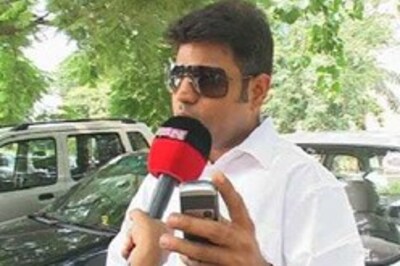
views
Kathmandu: Nepali troops and pro-democracy activists were set for more clashes across Nepal on Monday as a campaign against King Gyanendra's rule reaches its most intense level since he grabbed power last year.
Nepal's seven main political parties, which began a four-day nationwide general strike and protests on Thursday, said they were extending the campaign indefinitely to pile pressure on the king to end his absolute rule and restore democracy.
The government imposed a curfew in the Capital and surrounding areas on Monday for the third day and it was set to last 7 hours from.
State-run mobile phone services remained disrupted on Monday as well, seen as an attempt by the royalist government to scuttle coordination among protest organisers. But political parties said they were undeterred.
"We will continue to protest. In fact, we will step them up," said a leader of the Communist Party of Nepal (UML). Three people were killed over the weekend when troops opened fire to disperse protesters in several towns.
The government has said troops had been asked to first warn curfew violators and open fire at them if they refused to heed warnings and return indoors. A big pro-democracy rally planned in Kathmandu for Saturday failed to materialise after the government imposed a curfew and deployed armoured personnel carriers in the city. But some activists defied the curfew and staged small protests.
Parties creating chaos
Maoist rebels, who have been fighting to topple the monarchy since 1996, are supporting the latest campaign under a loose alliance with political parties.
The rebels said late on Sunday they would launch a parallel movement against the palace. The rebels have said they are not taking part in the protests organised by the parties but the royalist government accused them of infiltrating demonstrations and causing trouble.
The Maoist revolt has killed more than 13,000 people in one of the world's poorest countries, wrecking its aid-and-tourism dependent economy and forcing thousands to flee the violence in the countryside.
The turmoil worsened after King Gyanendra sacked the government and took power in February 2005 saying political leaders had failed to crush the Maoists and hold elections. State-run newspaper the Rising Nepal defended the government crackdown on protesters and the daily curfews, which it said had brought calm to Kathmandu and its surrounding valley.
"The government had given assurances that the parties would be permitted to conduct their programme if they broke their alliance with the Maoist terrorists," the newspaper said in an editorial on Monday.


















Comments
0 comment